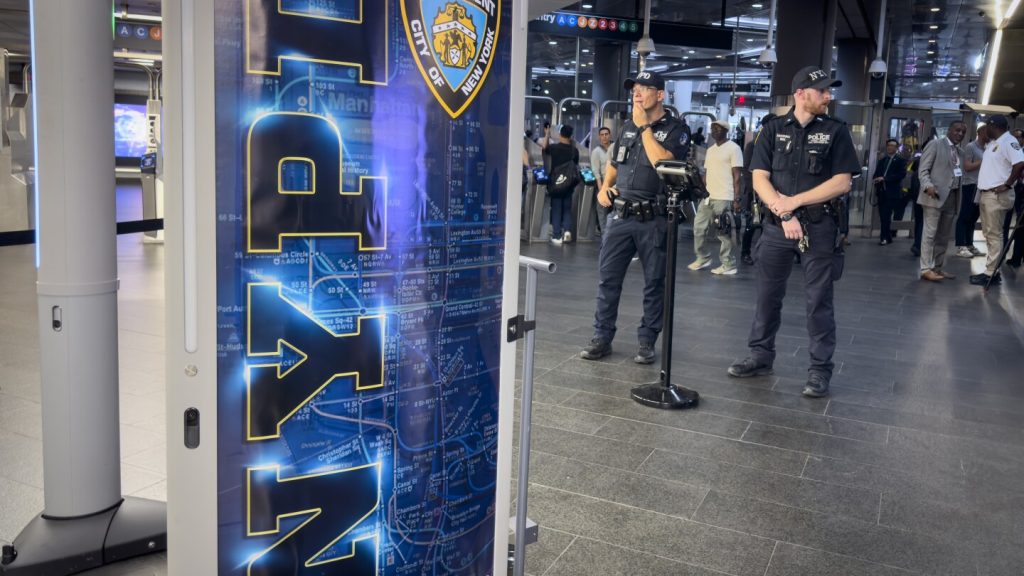New York City has introduced a pilot program using AI-powered scanners in an attempt to keep guns out of its subway system. The program was met with skepticism from riders, and civil liberties advocates have threatened to file a lawsuit, claiming the searches are unconstitutional. The Evolv scanner, which uses artificial intelligence to search riders for guns and knives, was introduced at a lower Manhattan subway station by Mayor Eric Adams. While Adams emphasized that the scanners are still in the experimental phase, the city has not yet entered into a contract with Evolv and is open to other companies pitching their own gun-detection technologies.
The scanners, which stand at about 6 feet tall and feature the NYPD logo, are designed to detect weapons and send alerts to a tablet monitored by police officers. The system is not meant to alert everyday items, such as phones and laptops, though there have been instances of false alarms. Civil liberties advocates, including the NYCLU and the Legal Aid Society, have voiced concerns about the potential widespread use of the technology, claiming it violates the constitutional rights of riders. Some riders have also expressed skepticism about the practicality of subjecting millions of commuters to security screenings.
Despite high-profile incidents, like a 2022 shooting on a Brooklyn train that left 10 people wounded, overall crime in the NYC subway system has decreased in recent years. Violent crime in the system is rare, and subway cars and stations are generally considered safe. Adams has previously discussed the idea of adding weapons detectors to the subway system, suggesting that eventually every turnstile may be able to identify if someone is carrying a gun. However, experts have raised doubts about the feasibility of implementing the technology across the vast subway system, which consists of 472 stations with multiple entrances and exits.
The CEO of Evolv has acknowledged that subways may not be the best use case for the scanners, as riders could potentially avoid them by entering through different entrances or stations. The company claims that its scanning system can screen up to 3,600 people per hour, quickly detecting weapons while not alarming cell phones and other metal devices. However, Evolv has faced lawsuits and federal probes regarding its marketing practices, with investors accusing company executives of overstating the devices’ capabilities. Despite these challenges, New York City has been experimenting with various security measures over the years to ensure the safety of its subway system.
In 2005, the NYPD ran a pilot project to assess the feasibility of using explosive detection technology in the subways, followed by random bag checks for subway riders. While these efforts were rolled out with much fanfare, bag checks are now rare. The effectiveness of the AI-powered scanners remains to be seen, with concerns raised about their practicality and potential violation of riders’ constitutional rights. As the pilot program progresses, the city will need to address these concerns while balancing the need for enhanced security in the subway system.


